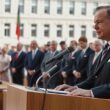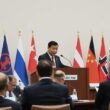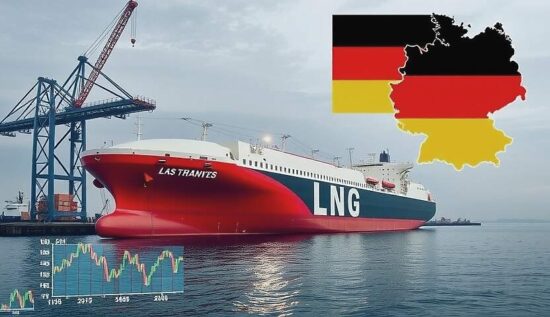The import of liquefied natural gas (LNG) from Russia surged by nearly 20% in 2024, according to the German environmental organization. A total of 22 billion cubic meters of LNG were imported into the EU last year.
One of the major beneficiaries of the boom in Russian LNG is the German state-owned company SEFE. SEFE was part of the Gazprom Deutschland network until its nationalization in June 2022. According to data from the analysis portal Kpler, the import of Russian LNG increased sixfold in 2023 compared to the previous year, with 5.66 billion cubic meters entering through SEFE in the French port of Dunkirk alone.
Russian-origin LNG is not subject to the sanctions, with only some restrictions in place. For instance, the gas cannot be re-exported to third countries and must be injected into the EU’s gas transmission network. Investments in Russian LNG projects and the export of technology that could be used to build additional LNG capacity in Russia are, however, prohibited.
SEFE justifies the import of Russian LNG by citing existing contracts. The company claims it has a take-or-pay obligation and must pay for the gas even if it does not take the agreed-upon quantity, allowing Russia to resell the excess and increase its earnings. However, this does not explain the surge in import volumes. SEFE made no specific statements on the delivery volume, but it is likely that the German state-owned company is contributing to the import record and profiting significantly.
The activity of the nationalized company contradicts the assertions of Economy Minister Habeck, who claims that Germany has successfully broken free from its dependence on Russian gas. While the gas is no longer traceable once it is injected into the EU’s transmission network, Germany still receives gas through this network and the state profits from the high gas prices triggered by the sanctions.
Not only the import of Russian LNG by a German state-owned company in contrast to the political message of Habeck and the federal government, but also the nationalization of the energy company Uniper SE, which has led to the German federal government becoming the owner of three nuclear power plants in Sweden, is a stark contradiction to the announced goals of the minister and his ministry. What Habeck proclaims as his objectives and what his ministry actually implements diverge in a striking way. The only area in which Habeck is truly consistent is in making energy extremely expensive for the Germans.





